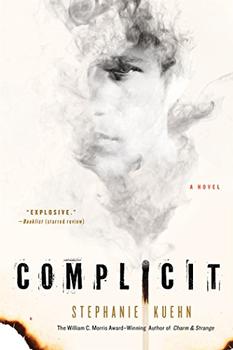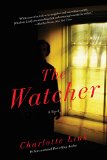Summary | Excerpt | Reading Guide | Reviews | Beyond the book | Read-Alikes | Genres & Themes | Author Bio

Here is a man named Douglas Sharp. He lives at number 4 Boselle Avenue, where he walks a little dog and doesn't pick up its business. He teaches at a local college, with a claim to fame of being a lecturer at Cambridge, though he's nothing of the sort, and actually left the university as a postgraduate student under a dark, violent cloud. He also cheats on his wife, Judith, with Abigail Rice, a part-time librarian, unbeknownst to Judith for a time.
Does all this make him a bad person? I would say yes. Your opinion may differ, depending on your life experiences. You might not find all of this so awful. After all, he's not the only human being who does such things. But let's pan back a little: Imagine him being judged by someone who has no right to judge him, who has as little morality as Sharp does, or even less.
Enter William Heming, the central character in Phil Hogan's A Pleasure and a Calling.
You'd find Heming either advertised on a bus bench or on a billboard, as we often find realtors. Heming owns his own firm, bought outright from Mower & Mower, whom he worked for in his early twenties. He knows his English town better than anyone there. He knows its streets, and its small necessities and attractions, the types of houses, the features of each, and he even knows every square inch inside of those houses because he has keys to all of them. The owners have the originals, but he has copies. And he sneaks inside some of those houses, living there unseen for a day, a weekend, sometimes bringing his own juice while using the glasses on offer in the owner's kitchen. Most important to the story, he keeps watch on Douglas Sharp.
It's disturbing enough to witness all of this, but it gets worse when he zeroes in on Abigail Rice, wanting her immensely, obsessed with being with her, perched in the attic of her home, listening to her below. And then a murder happens, which, because this is partly a black comedy, causes surprised laughter at the aftermath – specifically at the ways that Heming goes about trying to protect himself from the ensuing investigation, especially in his interplay with Detective Sergeant Monks and Detective Constable Roberts. He knows how to get around, but the descriptions of his actions become tiresome after a few pages, seeming to meld into one another, creating a large ball of blah. It may be author Phil Hogan's way of keeping us off track until that information comes into play in solving the murder, but it drags the story down into a sort of slow motion. However, perhaps there lies Hogan's talent, making those details feel so inconsequential until the time comes to solve the murder, and they become crucial.
In chapters separate from the murder mystery, Heming recounts his unsettling childhood that, to Hogan's credit, creates a context for why he is an invasively voyeuristic person. Is there something about the way he was raised that allows him to feel that what he does isn't so bad? He claims he simply loves people, and wants to know them more and help them. What of his past feeds into the current situation? It takes pages to get used to being in Heming's presence when feeling so uncomfortable with him, and so the answer to this question is unclear at times, but Hogan ties it all together by the end of the book.
When Heming is fully engrossed in the tail end of the murder investigation – which borders on sheer genius in its final explanation – Hogan is able to make him seem sensible on certain matters, such as in his declaration that normal people lead double lives, and that, in his opinion, he is more upstanding because he knows full well who he is and agreeably accepts it. In this way, Heming (and Hogan) make us question ourselves.
Finally, to further marvel at how Hogan has crafted A Pleasure and a Calling, there is the tightly-staged fight scene in low-key, formal language similar to that of a pricey vase being described in an auction catalog. There is also a moment that ought to make book lovers chuckle when Hogan, through Heming, has made an average public library sound positively creepy. By the end, it's quite possible that you'll be checking the cabinets, attics, bathtubs and the spaces under beds in your own home to be sure no one is lurking in darkness. You might also give strong consideration to changing the locks.
![]() This review was originally published in The BookBrowse Review in January 2015, and has been updated for the
January 2016 edition.
Click here to go to this issue.
This review was originally published in The BookBrowse Review in January 2015, and has been updated for the
January 2016 edition.
Click here to go to this issue.

If you liked A Pleasure and a Calling, try these:

by Stephanie Kuehn
Published 2016
Trust nothing and no one as you race toward the explosive conclusion of the gripping psychological thriller Complicit from Stephanie Kuehn, the William C. Morris Award--winning author of Charm & Strange.

by Charlotte Link
Published 2015
An immersive, atmospheric crime novel from the multi-million-copy bestselling author, Charlotte Link.
Your guide toexceptional books
BookBrowse seeks out and recommends the best in contemporary fiction and nonfiction—books that not only engage and entertain but also deepen our understanding of ourselves and the world around us.